

The image of the French people as a country of individualism, fashionable and liberal. On the other hand, they are also assertive and are said to be the most pessimistic country in the world.
When entertaining French visitors from France in Japan, knowing French business etiquette will help to create a more relaxed mood.
This is an introduction to business manners and French customs that you should know when entertaining French people, who respect the depth of history and culture of other countries and have a very high sense of pride in their country.
We will also guide you on how to entertain French people based on Japanese cultural experiences that they will love, so if you have decided to entertain French people, this is a must-read for you.
This article is presented by the author, who has lived in France for 20 years, so you can learn about current French manners and customs based on his actual experience.
We hope you will find it useful for your business with French people.
French Business Manners

Here we introduce some basic French business etiquette that may come as a surprise.
French Greetings

The French greeting is “bis”, a greeting that involves kissing both cheeks alternately.
Of course, same-sex people of all ages will also biz.
Nowadays in After Corona, fewer people do biz, especially in the case of business, but we are back to the usual practice of basically having a biz with those who are close to you.
A kiss is a mutual kiss, but it is more like a “kiss” between cheeks when the cheeks touch.
The number of times the cheeks are touched varies from region to region: once, twice, three times, etc., but basically twice is the norm, with the frequency increasing as one moves south.
Although this is a rather difficult greeting method for Japanese people, rest assured that in most cases, biz people shake hands basically when they meet for the first time or with business partners.
When meeting for the first time in business, the greeting is generally a handshake. When shaking hands, look the person firmly in the eye, grasp the hand firmly, and say your greeting and name.
However, if you have met someone many times or have developed a friendship with them through work, bizing them makes the greeting more natural and approachable.
They say it is very sad for French people not to biz in greeting even though they are very close to each other.
If a French person has come to Japan and spent a lot of time with you, many people do the biz to show their appreciation, especially when you say goodbye.
If this is the case, please do not be shy to respond with your biz.
French sense of time
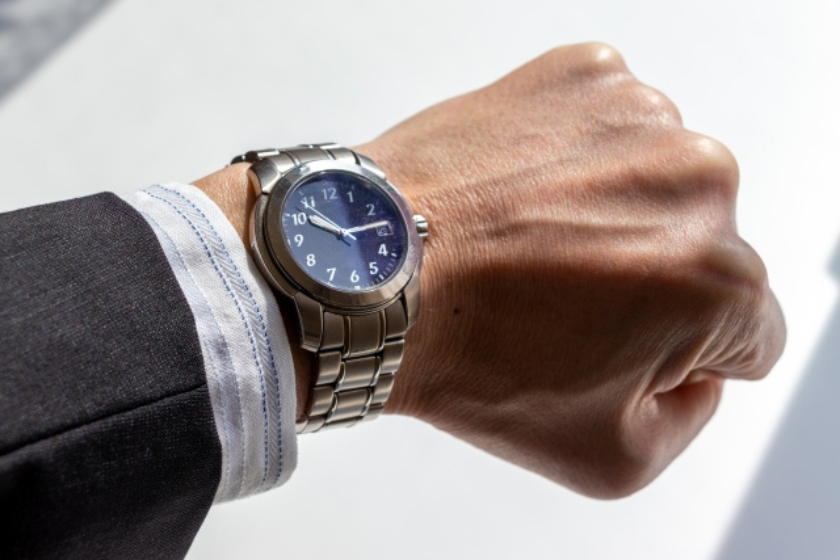
Some French people are extremely loose with their sense of time, while others are more precise, but on the whole, they tend to be more relaxed than the Japanese and consider appointment times as a guide.
In France, there are many demonstrations and strikes, and public transportation is completely unreliable, so tardiness for that reason is common.
Therefore, it is important to tell the other person the reason why you are late if you are late, as many people are very tolerant and say, “If you are late, it is no problem if you have a reason.
However, there are many people who are clumsy in the second half of the project as far as progress is concerned, so it is sometimes best to check in with them around the time of the deadline.
If communication or reporting tends to break off in the middle of a meeting, do not miss a deadline.
The French look you in the eye and talk to you.

Always look French people in the eye when greeting them, but also in conversation.
It is very important to look the other person in the eye when speaking, so although the French will stare at you with a great deal of eye contact, do your best not to be outdone and look them in the eye when speaking.
Looking away or looking elsewhere while speaking is considered rude and “not focused on the conversation with you,” making it difficult to gain credibility, no matter how great the content.
Also, if you keep looking away, you are often perceived as lying or saying something awkward.
When conversing with French people, be sure to look them in the eye.
The French respect vacations.

France, which has the world’s highest number of annual vacation days, averages 145.0 days per year for a 38-hour work week.
And, depending on the position, there are 4 to 8 weeks of paid annual leave.
French people, who believe that the most important thing in life is to “enjoy a vacation,” take vacations no matter how packed their work schedules are.
Be especially careful in the summer months of August, when French society as a whole is not moving, as it is next to impossible to communicate about work at this time of year and you will be perceived as a rather rude person.
No matter how packed our schedules are, we usually receive emails that say, “I’m on vacation from this date to this date, so please don’t contact me,” and if we both receive such an email, we avoid contacting each other while on vacation.
If you work with French people, you should accept this feeling because they do not feel guilty about taking vacations at all like Japanese people do.
Difference in Customs between Japanese and French

Here we introduce some of the differences in thinking and customs between the Japanese and French in order to avoid misunderstandings and problems in business.
The French don’t apologize.

The French do not apologize.
Even if they are at fault, many people make lots of excuses and cover it up.
C’est pas ma faute” and “C’est pas grave” as the French say.
C’est pas ma faute” means “It’s not my fault” and “C’est pas grave” means “It’s no big deal. C’est pas grave” means “It’s not my fault” and “C’est pas grave” means “It’s not a big deal”.
If something is wrong or inconvenient, the first thing that comes back to you is a “sepamaphot”.
For example, if you knock over a bottle and spill the contents, a Japanese person would immediately say “Excuse me! but a Frenchman would say, “Sepamaphot! and say, “It’s not my fault that the bottle is here. It’s not my fault. It’s not my fault.
Similarly, when I make a mistake, there is no apology, but rather, “Sepagrave, it’s no big deal.
There are also many “don’t care don’t care” responses.
Therefore, if you are going to do something with the French, it is important to understand this idea, which is the opposite of the “Sorry” or “I am sorry” apologies of the Japanese culture anyway.
Be careful not to take the easy way out and admit your fault, which is common courtesy for Japanese people, as it can lead to trouble later on.
The French are considered the best pessimists in the world.

One of the characteristics of the French, known as the world’s most pessimistic people, is that they complain about everything.
However, this should not be taken as a complaint, but rather as “I am just stating my opinion, my feelings, and my thoughts as they are.
And one point that is very different from the Japanese is that even if the French guests have many opinions about the things we showed them, they are not opinions about “you” who prepared the tour, but about the things they are experiencing.
For example, a French person might say about a restaurant I took him to, “This restaurant is a bit noisy and the flavors are a bit strong.
As a Japanese, I would say, “Oh, you didn’t like this restaurant….
I should have shown you a different restaurant….
In this case, however, it is not a complaint against “you” who guided us, but rather a sense of “I want to hear your honest opinion about what we are experiencing together.
Even if it sounds like a complaint at first, many people are more and more affirming as they talk, saying things like, “But it fits the atmosphere of the restaurant, and the wine is enhanced because of this intensity of flavor.
So, if you get a little negative feedback about what you have prepared or what you have prepared, and you feel that “I complained! In most cases, however, they are not blaming you.
It is complicated, but when the French start to complain, it is important not to be discouraged and to give your opinion, positive or negative.
Simply, many French people want to have a discussion about anything.
This way, they will feel closer to you and you will have a more and more open relationship with them.
Thus, when it comes to hospitality, French people are not expected to be hierarchical, but to be on the same page with respect to the phenomenon at hand.
Recommended related article: How do Japanese manners look like from overseas? Japanese Etiquette and Customs to Convey to Foreigners
What I want to say is clear.

Although there are social greetings in France, words are respected because the people are very language oriented.
Therefore, many people tend to take words as they are said, and many people tend to take excessive flattery and modesty as they are said, so refrain from excessive expressions.
There is no particular aesthetic of humility, so if you are too modest, people genuinely wonder, “How can you be so insecure?” I am genuinely curious.
If you give them a gift or a meal when entertaining someone and say, “It’s a boring thing, but…,” they will wonder, “Why would they go to the trouble of giving me something boring? If you give something as a gift, it may be considered rude to say, “This is the best recommendation! This restaurant is delicious! I recommend that you give something with confidence.
And be sure to say no.
Vaguely, “It’s a little difficult….
If you say, “I can’t do it,” they will suggest many solutions that will enable you to do it, and if you don’t make it clear that you can’t do it, it may never be over.
Thus, it will be important for the French people to firmly announce their opinions in concrete terms.
Is there hospitality in France?

So, does France have a culture of hospitality?
Here you will learn about French hospitality and how to choose a venue.
French entertainment is centered on dinner.

Entertainment also exists in France, and most French entertainment is based on dinner meetings.
The dinner is usually a time to relax and enjoy good food and wine while deepening the friendship.
During the first half of the meal, people tend to talk about what’s going on and about the meal they are eating, and as they get closer to dessert, people tend to talk about important things last.
So be sure to listen to the end of the story, even if it is long.
In any case, many people like conversation and discussion, and are expected to explain the support for their opinions.
This is not only for business, but we are always asked for reasons about everything.
As in everyday life, your opinions and values should be expressed with care.
Receptions and other events following the symposium will be important social occasions, where participants will exchange business cards, deepen exchanges, and actively promote themselves.
At this time, too, we will seize the opportunity by appealing ourselves more and more, including our own opinions, values, and approach to work.
Thus, in doing business with French people, it is important to be frank in sharing your opinions with them.
Recommended reading: Popular in France! What is Fine French Cuisine with a Japanese Taste?
What is the recommended dinner for French entertainment?
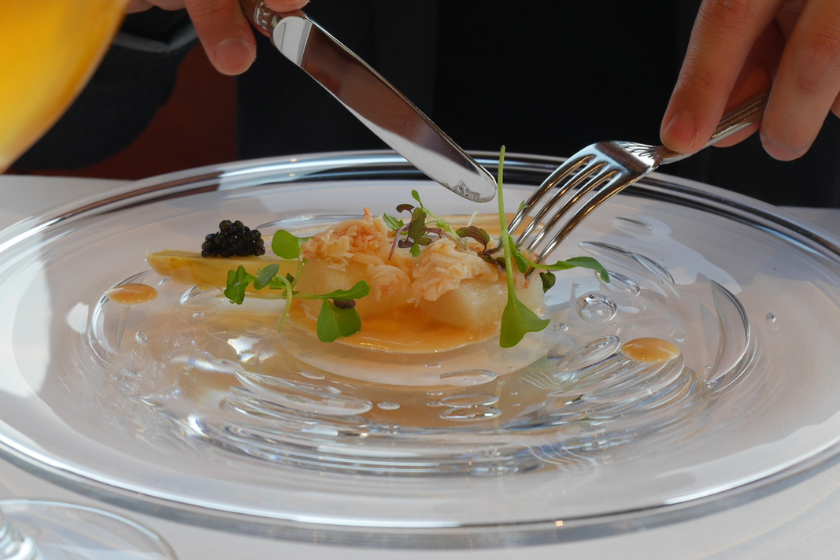
If you want to entertain well, I still recommend dinner rather than lunch.
In France, a country of gastronomy, many people are particular about food, and enjoying good food is very important to the people.
If you are having dinner with French people visiting Japan, Japanese cuisine is recommended.
Basically, the country has a fairly large number of pro-Japanese people, most of whom say they love Japanese food and atmosphere.
It is said that French nouvelle cuisine was inspired by Japanese kaiseki cuisine, so we recommend kaiseki cuisine because it is very familiar to French people.
In France, the standard appetizer, main course, and dessert is more familiar to diners at a flowing restaurant than at a one-course restaurant.
In particular, many people always want dessert, so even men will appreciate a restaurant that offers delicious desserts.
Recommended related article: Japanese Hospitality Episodes and Home Parties in France
Useful Manners for French Entertainment
Here are some manners to keep in mind when entertaining French people.
There are some details, but knowing them will make for a smooth dinner.
What kind of venue should I choose for entertaining with French people?
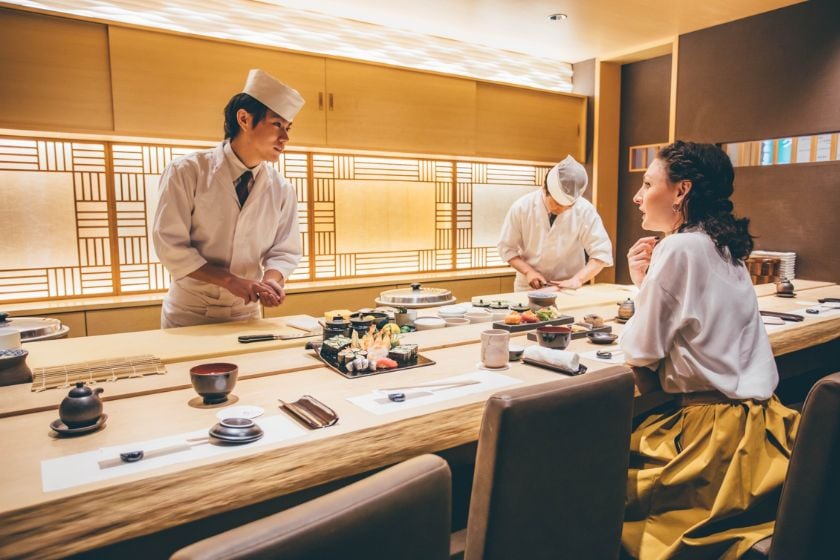
French people tend to prefer quiet restaurants with a nice atmosphere.
If you are entertaining French visitors to Japan, we recommend a relaxed Japanese restaurant.
Japanese cuisine is quite popular in France, and many people want to taste authentic Japanese cuisine in Japan.
There are many gourmets who enjoy even the most subtle changes in taste, which is similar to the Japanese palate.
Japanese popular culture such as izakaya (Japanese style pubs) and ramen are also popular, so if you are going to show them around for several days, take them to some good restaurants.
In addition, many Arab-African French people are Muslim, so they will be served with Halal food.
Some Jewish people may be present, so it is important to research in advance whether or not there are any food items you cannot eat, just in case.
How to make a French toast

The French toast is “Tchin! =or “Santé ! (Santé) = To your health! .”.
Raise your glass and look into the other person’s eyes, never look away, and look them in the eye.
At that time, it is against manners to toast across the room while others are toasting, so when toasting someone close to you, you should do so after the people in front of you have finished toasting first.
Toasts at celebrations are usually made with Champagne or Clermont bubblies.
It is recommended that they be provided for all celebrations and other receptions.
Then, after the toast, drink slowly, savoring each sip, not drinking the entire bottle.
Except for the toast, we will prepare different drinks again with the food and enjoy drinks that match the meal.
There is no particular pouring of alcohol.
If you want to drink, you pour your own glass, but if you see that someone else’s glass is empty, you ask if you should pour. It is good manners to ask if you would like to pour.
How French people drink alcohol

The key to drinking with the French is not quantity or attitude, but “good drinking”.
French people always drink wine with their meals.
Being able to choose the right wine to go with the meal is also important to know the status and values of the other party, so it is important that you give consideration to food and drink pairings when you are the host.
If you can stand by for a nice marriage of food and alcohol, you will be quite respected and will be credited with good taste.
Many people are familiar with good wine, so if you are not familiar with wine yourself, try a restaurant with a professional sommelier or recommend a good Japanese sake to go with your meal.
It doesn’t have to be wine because the balance between food and drink is important.
If you like sake, even shochu will be appreciated.
And wine and sake are very similar, not in taste but in their existence.
So, enjoying a variety of sake will also please the French.
What surprises me tremendously is the highball, which goes well with any food.
First-timers are quite surprised.
Since Japanese whiskey is very popular in France, you will be quite pleased with the experience of enjoying authentic Japanese whiskey in a secluded, authentic bar.
Thus, many people drink alcohol not to get drunk, but because they want to enjoy the taste, so a lot of alcohol is not necessary for French entertainment.
Recommended Related Article:
About the culture of souvenirs
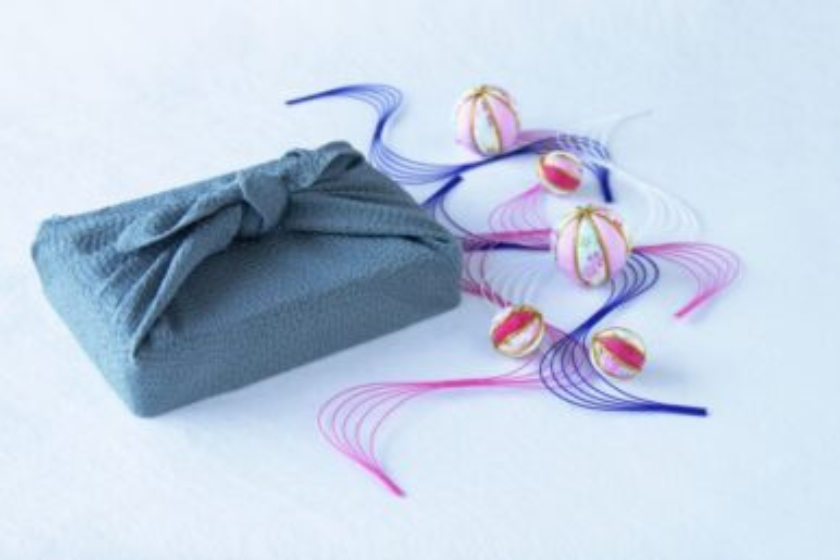
Among French business people, there is not much culture of hand-me-downs or souvenirs.
Especially in business, it is rarely necessary to give the other party a souvenir, and it is not rude not to do so.
If gifts are to be given within the company, Christmas gifts from the president to employees are the most common.
However, French people who visit Japan will be very happy if you give them a small gift as a memento or a friendly gesture.
However, there is no guarantee that business will proceed smoothly because you gave them a souvenir, since they feel it is a personal gift.
But I recommend souvenirs to go beyond the business framework and get to know them personally.
Japanese cultural experiences for French people
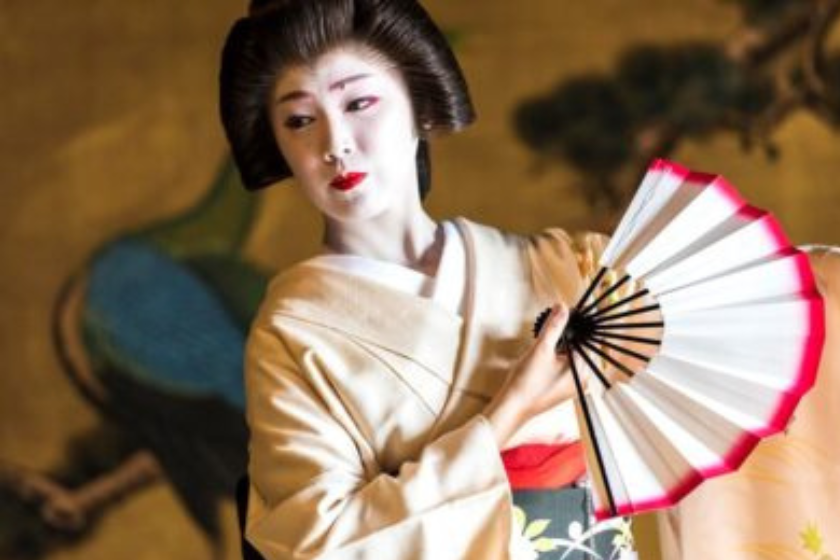
Here are some Japanese cultural experiences especially recommended for French people.
The French admire Japan as much as the Japanese admire France.
Isn’t it rare to find a country that is so compatible with each other? I can feel the same air in their feeling.
Therefore, if you have important French guests coming to Japan, I highly recommend experiencing Japanese culture!
We will guide you through Japanese cultural experiences that are particularly popular with French people, so please take a look.
Recommended related articles: Japanese cultural experiences popular among foreigners! Recommended 12 Experiential Sightseeing & VIP Entertainment
tea ceremony
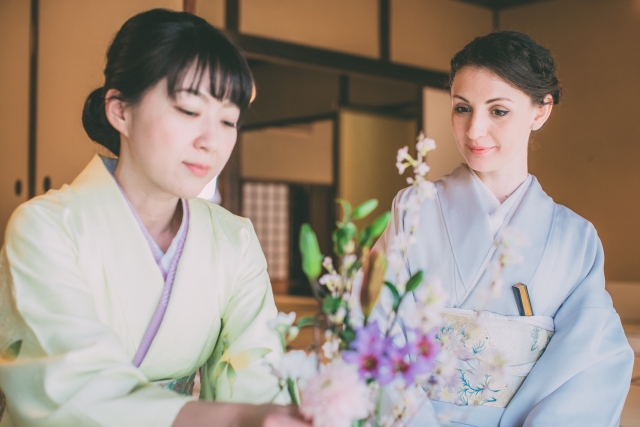
I often meet French people who admire the Japanese tea ceremony.
Many French people are interested in philosophy, and they attach great importance to the concept in their daily lives.
Therefore, the tea ceremony is a traditional Japanese culture that is of deep interest to French people, and there are so many people who admire its world.
Since many people are very sensitive to authenticity and tradition, and respect the depth of history and culture, we recommend that if you offer a tea ceremony experience, you should do so in an authentic setting.
Recommended related article: The French Perspective on Japan’s Attractiveness! Reasons to Love Traditional Japanese Culture
calligraphy
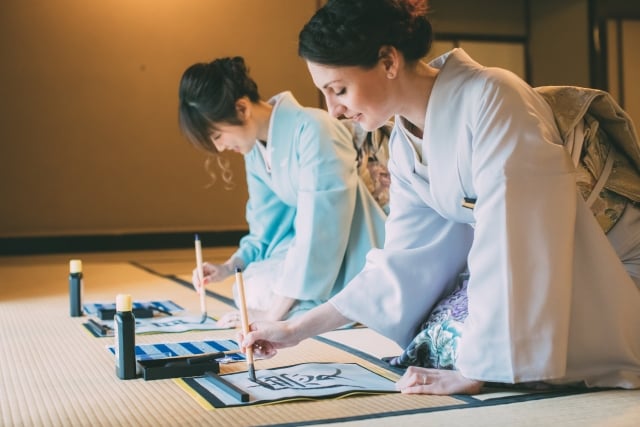
France also has a traditional culture of beautifully written letters called “caricatures,” a tradition that has continued since medieval times.
Since this is a country that places great importance on words and letters, many people tend to be interested in Japanese calligraphy.
In the calligraphy experience, you will actually do calligraphy.
Many French people are so impressed by the small details of calligraphy, such as the beautiful calligraphy tools, the aroma of the ink, and the careful handling of the calligraphy, that they are full of charm.
Recommended related article: Experience Japanese culture through calligraphy! Which kanji performance is popular among foreigners?
martial arts
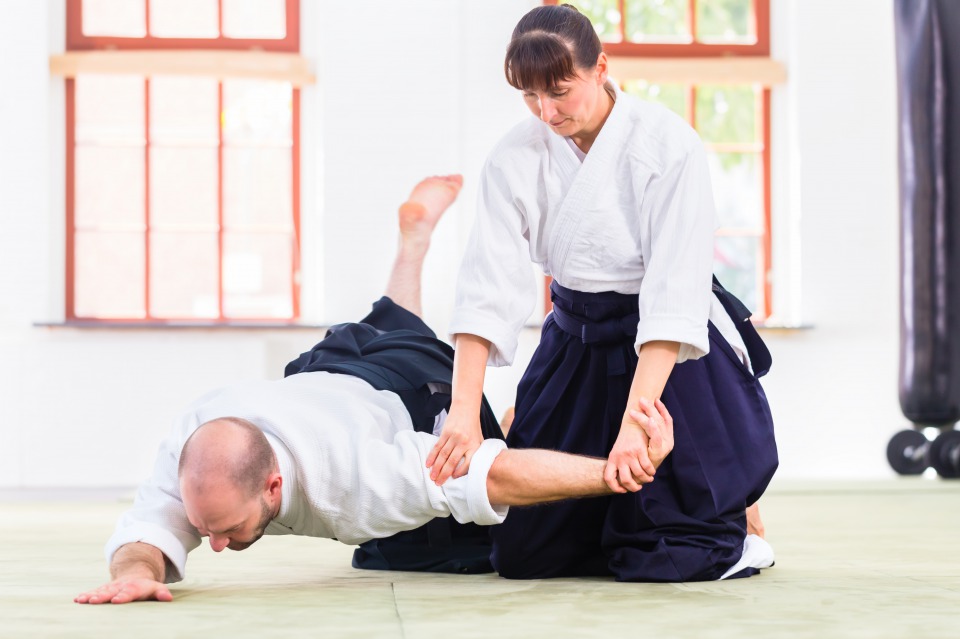
Former French President Jacques Chirac was famous for his unparalleled love of sumo, and Japanese martial arts are also very popular among the French.
Karate, aikido, kyudo, kendo, and jujutsu are popular as lessons for both children and adults, and karate in particular continues to be the No. 1 lesson for boys.
Martial arts experience as a team building or foreigner training will also be a lot of fun, as the French may already have a black belt.
Above all, many people admire the spirituality of martial arts, so if you are going to have French people experience it, by all means, introduce them to the theory of thought as well.
Recommended related article: Former French President and Diplomatic Hospitality who Loved Sumo and Japanese Culture
Sake Tasting and Sushi

Wine is a French fermented liquor loved around the world, whose taste varies depending on the region where the grapes are grown, the climate of the year, and the amount of water and rainfall.
Japanese sake is also a fermented alcoholic beverage nurtured by beautiful water in a region famous for its rice, and people in other countries take the taste of sake more seriously than those in other countries.
Rizake is similar to wine tasting, so it can be considered a familiar Japanese experience.
However, it is so similar to the wine culture that it may not be as special to the French….
Therefore, if you are planning a sake-tasting event, we recommend a combination of sake-tasting and other aspects of Japanese culture, such as having a sushi chef in a private Japanese-style room and having the chef make sushi on the spot.
The French are sensitive to taste.
It is fun to enjoy several kinds of sake and discuss their flavors, and if you prepare a rarely experienced Japanese cultural experience on top of that, it will be quite an impressive entertainment.
Recommended related article: [What is the popular sushi culture in France? Sushi Entertainment in France
traditional incense-smelling ceremony
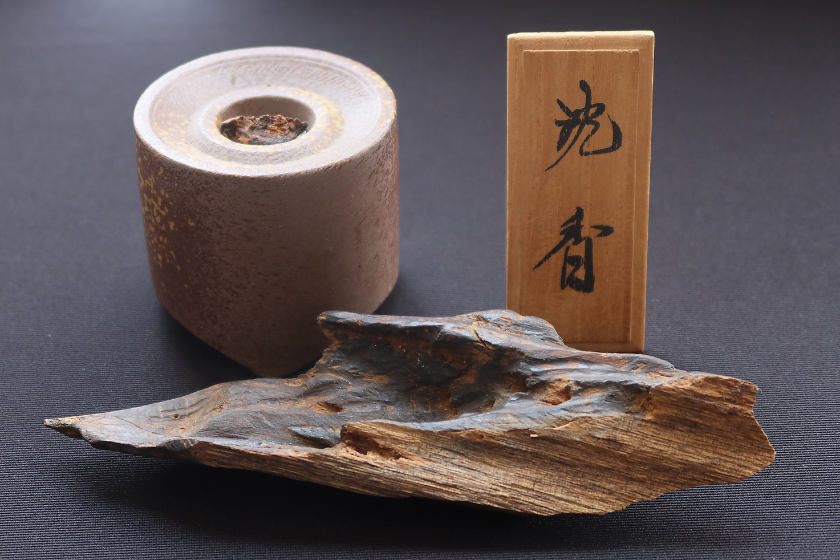
The French are very particular about fragrance.
Since the Louisian period, perfume has been cherished in France.
Even today, not wearing perfume is like walking around naked! As they say, many people, young and old, men and women alike, wear perfume naturally in this country.
As expected, Kodo is a popular Japanese cultural experience for French people.
As a nation that also enjoys fragrance, the Kodo experience is very profound, and you will enjoy a peaceful time while actually smelling the depth of the fragrant wood.
Thus, many French people are very interested in Kodo, the traditional culture of enjoying fragrance.
Recommended Related Articles:What is Japanese Culture from Foreigner’s Perspective|10 Special Japanese Experiences and 5 Popular Plans that Foreigners Prefer
Noh, Kyogen, Kabuki
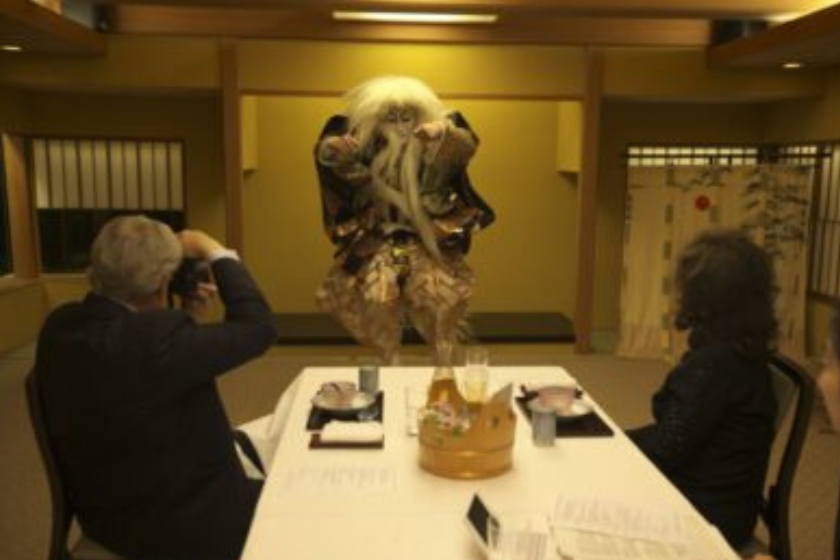
Even in France, interest in ballet and orchestral music is a status symbol for highly educated people.
So, if you are entertaining French people who are interested in history and culture, a Noh viewing is recommended.
As the birthplace of Japonism, the French have long loved Japan’s unique aesthetic.
Noh and Kyogen are also very inspiring to many people because they allow them to experience the ethereal beauty of Japan.
Many people are also deeply interested in Noh masks, and some even have collections of Noh masks.
Recommended Related Articles: [What is Japonism? The Influence of Japanese Art in the History of Western Art
Recommended for inbound visitors to Japan! What is popular traditional entertainment?
summary

Many French people believe that no matter how much money you have, you are worthless if you are not cultured, so people, especially those in high society, expect their partners to be culturally educated and have a deep historical perspective.
In addition, because of the respect the people have for history and tradition, many people have a deep interest in and respect for Japanese culture, especially among foreign countries around the world.
At first glance, the French seem to be the opposite of the Japanese in their individualism and assertiveness, but they are very close in their view of tradition.
Since France and Japan are countries that respect each other’s culture and history, it is very easy for them to understand each other’s hospitality and they are deeply moved by it.
I hope that this spirit will be applied to business as well.
If you are going to entertain French people, let’s entertain them with the highly cultured Japanese culture!

We are working day and night to spread Japan’s unique hospitality culture to people around the world. Please feel free to contact us for any inquiries regarding the reception and hospitality of guests visiting Japan.


